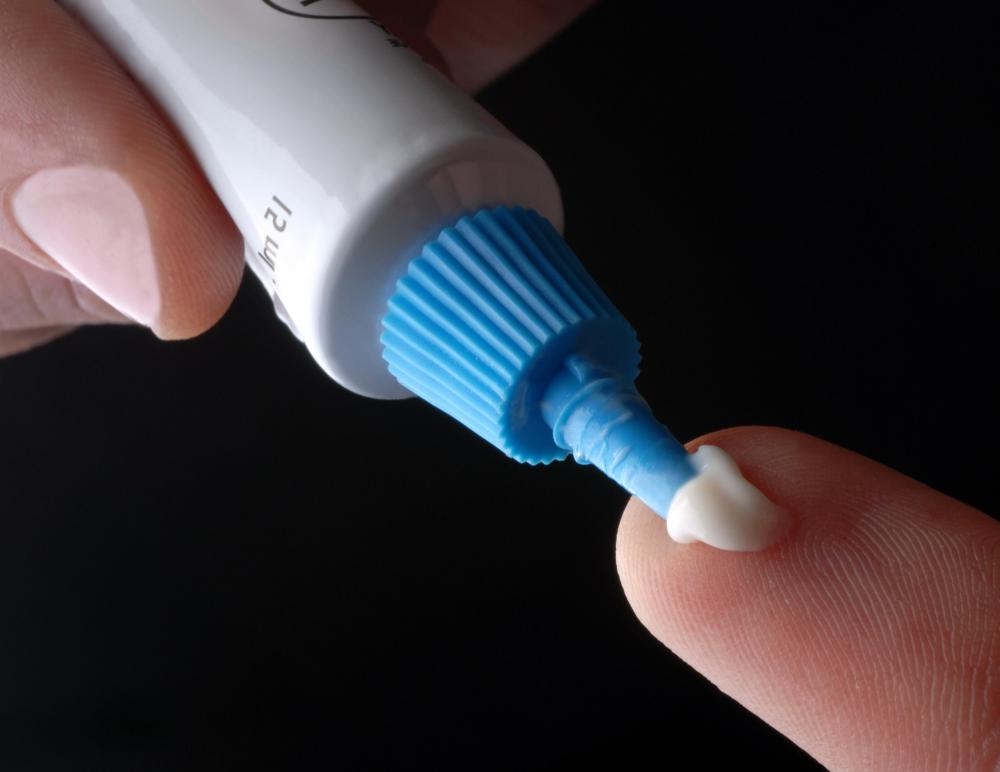At TheHealthBoard, we're committed to delivering accurate, trustworthy information. Our expert-authored content is rigorously fact-checked and sourced from credible authorities. Discover how we uphold the highest standards in providing you with reliable knowledge.
How Effective Are Antibiotics for Inflammation?
The use of antibiotics for inflammation is something that is still being studied. They have been shown effective in treating bowel inflammation and a variety of other conditions. Other types of inflammation may not be helped at all. Antibiotics are also especially effective for inflammation being caused by a bacterial infection. This is a common cause for inflammation, although other symptoms may also be present.
Antibiotics are medications prescribed to those who are suffering from a bacterial infection, as well as certain inflammatory conditions, such as Crohn's disease. Despite common misconception, antibiotics are not effective when used for viral or fungal infections. For this reason, any infection-related inflammatory symptoms should be determined to be from bacteria before being treated with antibiotics.

When inflammation is being caused by infection, other symptoms will typically be noted. These most often include pain, redness, pus, oozing, bleeding, or fever. The skin may also feel hot to the touch. The severity of these symptoms will depend on how infected the area is, and how widespread the infection has become.
It has been shown that the use of antibiotics for inflammation may be effective, even in conditions where bacteria is not to blame. There is a wide variety of conditions which have been shown to cause inflammatory responses, and some have been treated successfully using an antibiotic medication. Some of these could be related to bacterial infection, although more research is needed to determine exactly how effective these drugs are.

The use of antibiotics for inflammation is most common in the treatment of certain conditions of the bowel. Although it is often hard to determine what causes large intestine swelling and pain, an overgrowth of bacteria is one potential cause. Some natural health practitioners argue that using antibiotics for this purpose can also kill "friendly" bacteria found in the intestines, leading to more problems. Using a probiotic formula may offer relief similar to using antibiotics, but without this side effect.

Using antibiotics for inflammation not related to infections can be risky for various reasons. Many antibiotic medications can cause troubling side effects like nausea and dizziness. They can also lead to additional infection, like yeast infection, which can cause discomfort and lead to additional treatments being needed. For this reason, repeated doses of antibiotics should be administered with caution if the initial treatment was not effective. This could indicate that a bacterial infection is not to blame for symptoms.
AS FEATURED ON:
AS FEATURED ON:




















Discussion Comments
@fify: Gingivitis is an inflammation of the gums, usually caused by a bacterial infection. This is most likely the reason that the antibiotics your dentist prescribed worked. Many inflammations have bacterial origins. Antibiotics work for those. Many mouthwashes contain alcohol and therefore can dry out the mouth and can be irritating to already inflamed gum. Peppermint tea (also anti-inflammatory), warm salt water, baking soda, clove (also highly anti-inflammatory), and tea oil oil are all great natural treatments for gingivitis. These need to be used at least 4 to 5 times a day. Once or twice may not do the trick if the condition is already quite bad. Antibiotics don’t work for low grade inflammation due to poor diet and life style.
I have taken various antibiotics for Lyme disease over the years and my experience has been that some antibiotics have anti-inflammatory effects, but some don't. It completely depends on the drug.
I think it's misleading to say that antibiotics work for inflammation. They do and they don't. They work when the inflammation is caused by a bacterial infection, like the article said.
For example, antibiotics are given for acne which are technically inflamed spots on skin. And antibiotics do work for acne, but only because acne is caused by bacteria.
If you fell down and injured your forearm and it became swollen, you wouldn't take antibiotics for it. Antibiotics won't do anything for the inflammation in that situation.
Antibiotics definitely work for inflammation. I've experienced it myself.
I developed gum inflammation several weeks ago. It was very bothersome and painful. I thought it would go away on its own so I just gargled with salt water and mouthwash. But it didn't get better, it got worse.
I finally went to the dentist and he prescribed an oral antibiotic for me. I took the antibiotic for five days, but the inflammation was totally gone by the third day. Antibiotics are great.
Post your comments